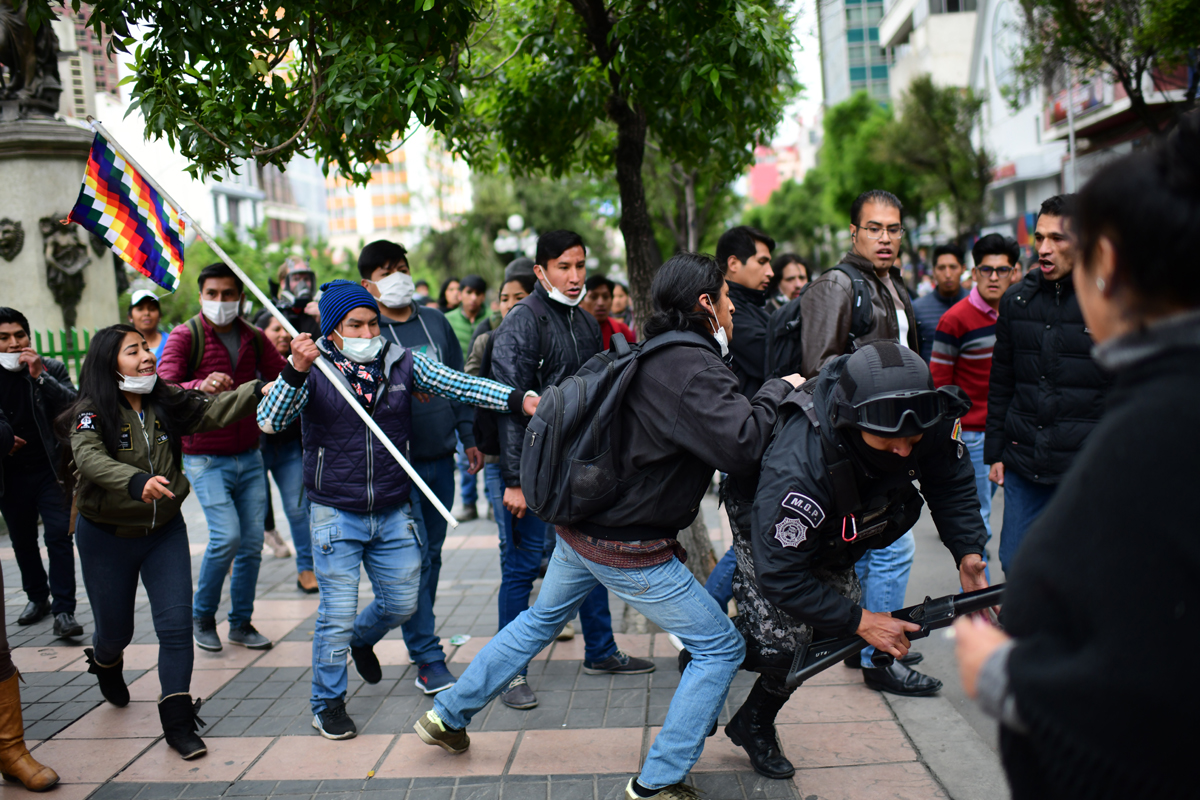Bolivia is in crisis after the recent election yielded no change of government. The presidential office has been reduced to a game of musical chairs. The Bolivian senator, Jeanine Añez ,has declared herself the country’s interim President after the resignation of Evo Morales, even though lawmakers from his party boycotted the legislative session where she assumed office. At 52, Añez assumed temporary control of the Senate late on Tuesday.
“I will take the measures necessary to pacify the country,” she said, swearing on the Bible to loud cheers and applause. The move is expected to pave the way for fresh elections, indeed yet another tryst with democracy that in itself is testament to the fragility of the political system in a swathe of Latin America. The grandstanding was only an expression of momentary euphoria. Morales’s Movement Towards Socialism called the session illegal and its legislators refused to take part.
Hundreds of his supporters marched against Añez assuming the role. “She’s declared herself president without having a quorum in the parliament,” said her detractors. “She doesn’t represent us.” Morales, who resigned under pressure from the police and the army after a fiercely disputed election, has flown into exile in Mexico, leaving a confused power vacuum behind in Bolivia. Speaking at a hastily organised press conference on the tarmac, the former President thanked Mexico for “saving my life” and repeated his accusation that his rivals had forced him out in a coup.
Mexico has provided safety for persecuted political leaders, from Leon Trotsky to activists who fled Argentina and Chile during the military dictatorships of the 1970s and 80s. Morales alleged that before his resignation on Sunday a member of the army had showed him messages putting a $50,000 price on his head. Morales’s sudden departure was a dramatic fall for the former coca growers’ union leader who swept to power 14 years ago in a historic election. He went on to win two more landslide victories and lifted millions out of poverty.
But Morales’s popularity began to wane in 2016, when he ignored a referendum in which voters said he could not run for a fourth term. Mass protests broke out after last month’s election following an unexplained 24-hour halt in the voting which fuelled accusations of electoral fraud. Áñez denied that Morales had been the victim of a coup, saying: “What happened in Bolivia was the verification of monumental fraud. A coup d’etat is when there are soldiers in the streets.”
The President has been ousted and there need be no quibbling over semantics. The response of neighbouring countries to Morales’ ouster has reflected the ideological divisions of a continent where populism ~ on the right and the left ~ has been on the rise once again. The grandstanding over Tuesday’s “change of guard” was only an expression of momentary euphoria. Bolivia bears witness to a caricature of democracy. Governance languishes in limbo, much as it does in Chile and further afield in Hong Kong.











